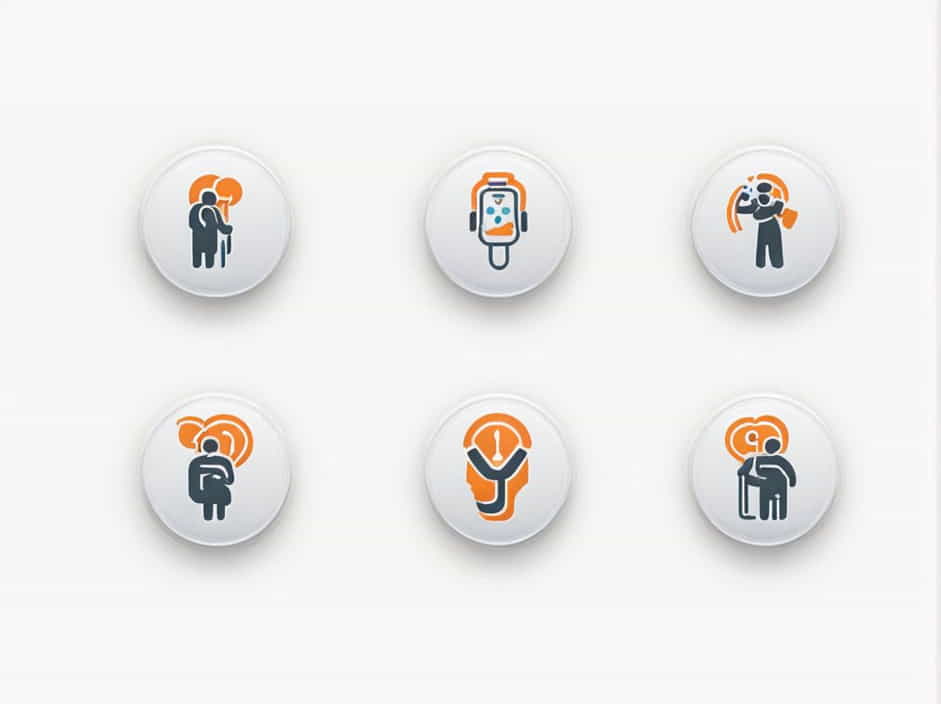A Doctor of Audiology (Au.D.) is a specialized healthcare professional who diagnoses, treats, and manages hearing and balance disorders. Audiologists work with patients of all ages, from newborns to the elderly, helping them improve their auditory and vestibular health.
With the increasing prevalence of hearing loss and balance issues worldwide, audiologists play a crucial role in enhancing quality of life. This topic explores the role of a Doctor of Audiology, their education, responsibilities, and career opportunities.
What Is a Doctor of Audiology?
A Doctor of Audiology (Au.D.) is a healthcare professional trained in:
- Hearing loss diagnosis and treatment
- Hearing aid and cochlear implant fitting
- Balance disorder management
- Preventive care for hearing health
Unlike a general physician or ENT (ear, nose, and throat) specialist, an audiologist focuses exclusively on hearing and balance issues, using advanced diagnostic tools and therapeutic techniques.
Education and Training for a Doctor of Audiology
1. Undergraduate Degree
Aspiring audiologists must first complete a bachelor’s degree, typically in fields like:
- Communication sciences and disorders
- Biology
- Psychology
- Linguistics
While a specific major isn’t always required, coursework in anatomy, physics, and speech-language pathology can be beneficial.
2. Doctor of Audiology (Au.D.) Program
After obtaining a bachelor’s degree, students must enroll in a Doctor of Audiology (Au.D.) program, which typically lasts four years. This program includes:
- Classroom instruction in hearing science, diagnostics, and rehabilitation
- Clinical training in hospitals, private clinics, and research facilities
- Internships and residencies to gain hands-on experience
3. Licensing and Certification
To practice, audiologists must obtain a state license, which usually requires:
- Completing an accredited Au.D. program
- Passing a national certification exam
- Completing continuing education to maintain licensure
Some audiologists choose to earn additional certifications, such as the Certificate of Clinical Competence in Audiology (CCC-A) from the American Speech-Language-Hearing Association (ASHA).
What Does a Doctor of Audiology Do?
1. Diagnosing Hearing Disorders
Audiologists perform comprehensive hearing tests to assess a patient’s hearing ability and detect issues like:
- Sensorineural hearing loss (caused by inner ear or nerve damage)
- Conductive hearing loss (caused by blockages or structural problems)
- Mixed hearing loss (a combination of both types)
2. Treating Hearing Loss
Based on test results, audiologists recommend appropriate treatment options, such as:
- Hearing aids for mild to severe hearing loss
- Cochlear implants for profound hearing impairment
- Assistive listening devices for improved sound clarity
3. Managing Balance Disorders
The inner ear plays a critical role in balance. Audiologists help diagnose and treat vestibular disorders, including:
- Vertigo
- Meniere’s disease
- Labyrinthitis
Treatments may include vestibular rehabilitation therapy (VRT) to help patients regain stability.
4. Counseling and Patient Education
Hearing loss can impact mental health, communication, and social interactions. Audiologists provide:
- Guidance on hearing preservation (e.g., noise protection strategies)
- Counseling for patients and families to adjust to hearing loss
- Communication strategies for those with hearing impairments
5. Newborn and Pediatric Hearing Care
Hearing issues can affect speech and language development in children. Audiologists perform:
- Newborn hearing screenings
- Speech and language assessments
- Early intervention programs to support hearing-impaired children
6. Research and Innovation in Audiology
Many audiologists work in research institutions, developing:
- Advanced hearing aid technology
- Cochlear implant improvements
- New diagnostic tools for hearing disorders
Career Opportunities for a Doctor of Audiology
1. Private Practice
Many audiologists open their own clinics or work in multispecialty medical centers. They provide hearing evaluations, hearing aid fittings, and ongoing patient care.
2. Hospitals and Medical Centers
Audiologists work alongside ENT specialists, neurologists, and speech therapists in hospitals to diagnose and treat hearing and balance disorders.
3. Educational Institutions
Some audiologists work in schools and universities, helping students with hearing impairments and conducting research on hearing and speech development.
4. Hearing Aid and Cochlear Implant Companies
Audiologists are involved in product development, sales, and training, working with manufacturers to design and improve hearing devices.
5. Government and Public Health Agencies
Many audiologists contribute to public health programs, focusing on hearing conservation, workplace safety, and hearing loss prevention initiatives.
6. Research and Academia
Those interested in scientific advancements can pursue careers in audiology research, helping develop better treatments and diagnostic methods.
How to Become a Successful Audiologist
1. Stay Updated with Technology
Audiology is a rapidly evolving field. Staying informed about new hearing aid models, cochlear implants, and diagnostic tools is essential.
2. Develop Strong Communication Skills
Audiologists must explain complex conditions in simple terms to patients and their families. Good communication improves patient trust and treatment outcomes.
3. Gain Clinical Experience
Hands-on practice is crucial. Working in diverse clinical settings helps audiologists understand different patient needs.
4. Pursue Specializations
Audiologists can specialize in areas like:
- Pediatric audiology (working with children)
- Geriatric audiology (helping elderly patients)
- Vestibular audiology (treating balance disorders)
5. Join Professional Organizations
Being part of groups like ASHA or the American Academy of Audiology (AAA) helps audiologists stay connected with industry trends.
A Doctor of Audiology (Au.D.) is a highly trained healthcare professional specializing in hearing and balance disorders. They play a vital role in diagnosing, treating, and managing hearing loss and vestibular conditions, improving patients’ quality of life.
With a growing demand for audiologists, this career offers exciting opportunities in healthcare, research, and education. Whether working in hospitals, private clinics, or research labs, audiologists contribute to advancing hearing care and technology.
